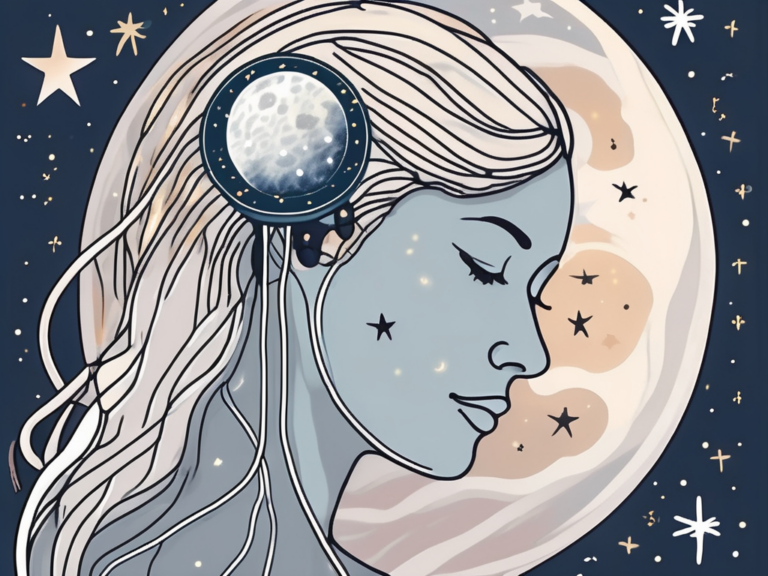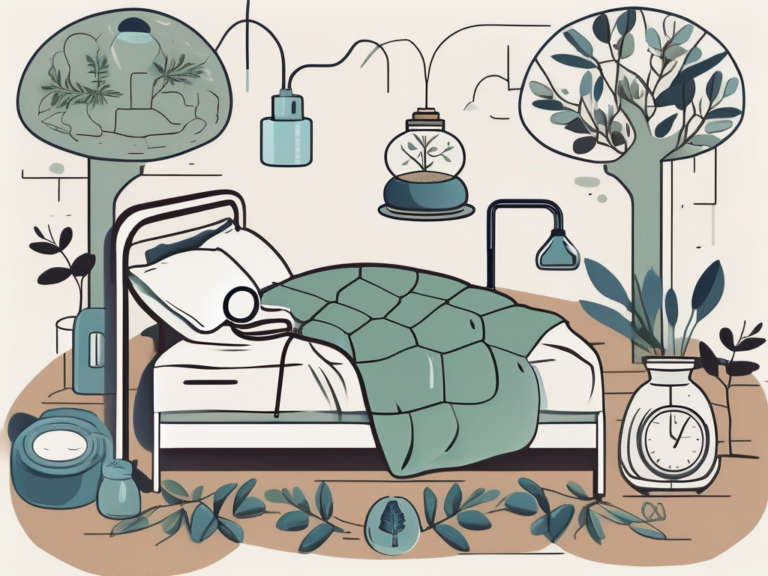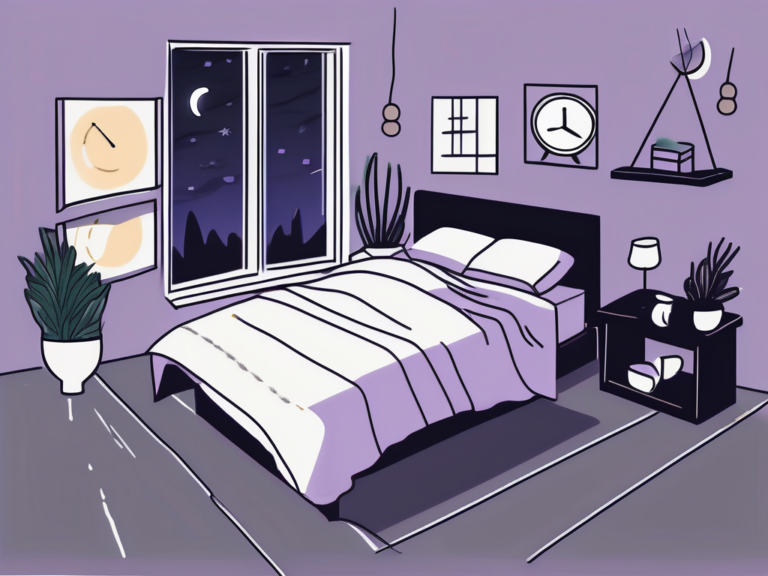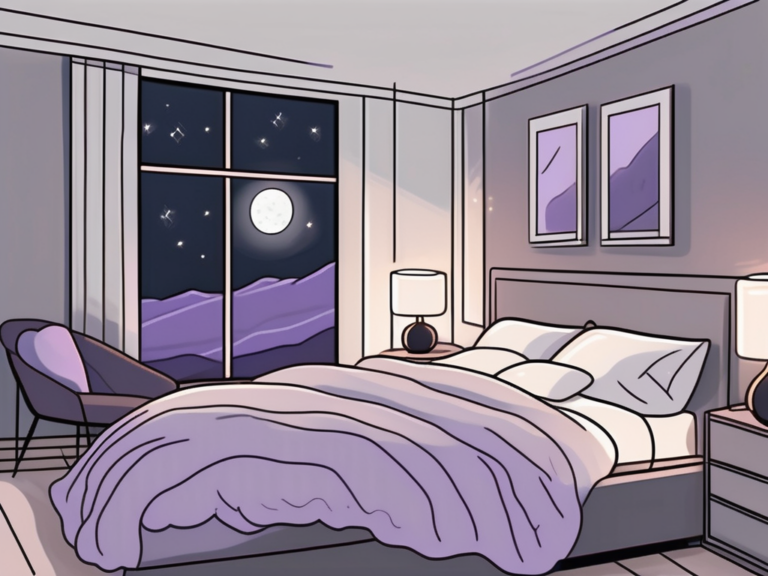Tips on How to Sleep Fast
Getting a good night’s sleep is essential for our overall health and well-being. However, for many people, falling asleep quickly can be a challenge. The good news is that there are several tips and techniques that can help you sleep faster and wake up feeling refreshed. In this article, we will explore the importance of sleep, common sleep obstacles, creating a sleep-inducing environment, developing a sleep-friendly routine, the role of nutrition and exercise, the impact of technology, and seeking professional help when needed.
Understanding the Importance of Sleep
Sleep plays a vital role in our physical and mental health. It allows our body to repair and rejuvenate, supports brain function, and enhances our overall well-being. During sleep, our bodies go through different stages, including REM (rapid eye movement) and non-REM sleep, each with its own important functions.
The Science Behind Sleep
While the exact mechanisms of sleep are not fully understood, it is believed that the brain regulates sleep-wake cycles through the release of different neurotransmitters and hormones. These chemicals help control our sleep patterns and ensure that we get the right amount of restorative sleep each night.
Why Quality Sleep Matters
Poor sleep quality can lead to a range of health issues, including increased risk of chronic conditions such as obesity, diabetes, and heart disease. It can also affect our cognitive abilities, mood, and overall productivity. Therefore, it is crucial to prioritize good sleep to maintain optimal health and well-being.
Let’s delve deeper into the fascinating world of sleep and explore the different stages that our bodies go through during the night. During non-REM sleep, our bodies experience a decrease in heart rate, blood pressure, and body temperature. This is the time when our muscles relax, and our body repairs itself, allowing us to wake up feeling refreshed and energized.
On the other hand, REM sleep is when our brain activity increases, and our eyes move rapidly. This stage is associated with vivid dreaming and plays a crucial role in memory consolidation and emotional regulation. It is during REM sleep that our brain processes and stores information, helping us retain what we have learned throughout the day.
Now that we understand the science behind sleep stages, let’s explore the impact of sleep deprivation on our overall health. Chronic lack of sleep can disrupt the balance of hormones in our body, leading to an increased appetite and a higher risk of weight gain. It can also impair our immune system, making us more susceptible to infections and illnesses.
Furthermore, poor sleep quality can have a significant impact on our mental well-being. It can contribute to the development of mood disorders such as depression and anxiety. Additionally, it can affect our ability to concentrate, make decisions, and solve problems, hindering our productivity and performance in daily tasks.
Given the importance of sleep, it is essential to establish healthy sleep habits and create a conducive sleep environment. This includes maintaining a consistent sleep schedule, creating a relaxing bedtime routine, and ensuring that our sleep environment is comfortable, quiet, and free from distractions.
In conclusion, sleep is not just a period of rest for our bodies; it is a complex process that plays a vital role in our overall health and well-being. Understanding the science behind sleep stages and the impact of sleep deprivation can help us prioritize good sleep and make necessary lifestyle changes to ensure we get the quality rest we need.
Identifying Sleep Obstacles
Various factors can impede our ability to fall asleep quickly. Understanding these obstacles can help us address and overcome them effectively.
When it comes to getting a good night’s sleep, it’s important to be aware of the common sleep disorders that can significantly disrupt sleep patterns. Insomnia, for example, is a sleep disorder characterized by difficulty falling asleep or staying asleep. It can leave you feeling tired and groggy during the day, affecting your overall well-being. Sleep apnea, on the other hand, is a condition where breathing is repeatedly interrupted during sleep, leading to poor sleep quality and potential health risks. Restless leg syndrome, another common sleep disorder, causes uncomfortable sensations in the legs, often leading to an irresistible urge to move them, making it hard to relax and fall asleep.
Recognizing the symptoms of these sleep disorders is crucial in order to seek professional help if necessary. Consulting with a healthcare professional can provide valuable insights and guidance on how to manage and treat these conditions, ultimately improving your sleep quality and overall health.
The Impact of Stress and Anxiety on Sleep
Excessive stress and anxiety can have a profound effect on our ability to unwind and fall asleep. When our minds are filled with worries and racing thoughts, it becomes increasingly difficult to find the peace and relaxation needed for a restful night’s sleep.
Implementing stress management techniques can play a vital role in promoting relaxation and better sleep. Meditation, for instance, is a powerful practice that helps calm the mind and release tension from the body. By focusing on the present moment and letting go of worries, you can create a peaceful mental state conducive to sleep. Deep breathing exercises are another effective technique to reduce stress and anxiety. Taking slow, deep breaths in through the nose and out through the mouth can activate the body’s relaxation response, helping you unwind and prepare for a good night’s sleep.
It’s important to prioritize self-care and make time for activities that help reduce stress and promote relaxation. Whether it’s engaging in a hobby, spending time in nature, or practicing mindfulness, finding what works for you can make a significant difference in your sleep quality and overall well-being.
Creating a Sleep-Inducing Environment
The environment in which we sleep can greatly impact the quality and speed of our sleep. Making a few simple changes can make a big difference in how quickly we fall asleep and how well we rest.
When it comes to creating a sleep-inducing environment, it’s important to consider the role of light and temperature. Darkness and cool temperatures are conducive to sleep. Research has shown that exposure to light, especially blue light emitted by electronic devices, can suppress the production of melatonin, a hormone that helps regulate sleep. To create a dark and quiet environment, consider using blackout curtains to block out any external light sources. This can help signal to your body that it’s time to sleep. Additionally, investing in a white noise machine or using earplugs can help drown out any disruptive sounds that may interfere with your sleep.
The Role of Light and Temperature
Darkness and cool temperatures are conducive to sleep. Create a dark and quiet environment by using blackout curtains, earplugs, or a white noise machine to drown out disruptive sounds. It’s also worth noting that maintaining a cool temperature in your bedroom can promote better sleep. The National Sleep Foundation recommends keeping your bedroom temperature between 60 and 67 degrees Fahrenheit (15 to 19 degrees Celsius) for optimal sleep. This temperature range helps to mimic the natural drop in body temperature that occurs during sleep, signaling to your body that it’s time to rest.
Choosing the Right Bedding
Investing in a comfortable mattress and pillows that support your body’s natural alignment can make a significant difference in how quickly you fall asleep. When it comes to choosing the right bedding, it’s important to consider factors such as material, breathability, and quality. Opting for breathable, high-quality bedding can help regulate temperature and ensure a more restful sleep. Natural fibers like cotton and bamboo are known for their breathability, allowing for better air circulation and moisture-wicking properties. This can help prevent overheating and night sweats, leading to a more comfortable sleep environment.
Furthermore, it’s important to regularly clean and maintain your bedding to keep it fresh and free from allergens. Washing your sheets and pillowcases at least once a week can help remove dust mites, dead skin cells, and other potential irritants. Additionally, using hypoallergenic pillow and mattress protectors can provide an extra layer of defense against allergens, ensuring a cleaner and healthier sleep environment.
Developing a Sleep-Friendly Routine
Establishing a consistent sleep routine can signal to your body that it’s time to wind down and prepare for sleep. Follow these steps to develop a sleep-friendly routine:
Sleep is a vital component of our overall well-being, and having a consistent sleep schedule can work wonders for our health. When we go to bed and wake up at the same time every day, including weekends, we help regulate our body’s internal clock. This internal clock, also known as the circadian rhythm, plays a crucial role in determining our sleep patterns and overall sleep quality. By aiming for seven to nine hours of sleep each night, we allow our bodies to experience optimal rest and rejuvenation.
The Power of a Consistent Sleep Schedule
Having a consistent sleep schedule not only helps regulate our internal clock but also promotes a sense of stability and balance in our lives. When we establish a routine, our bodies become accustomed to the rhythm, making it easier to fall asleep and wake up naturally. Imagine waking up feeling refreshed and energized, ready to take on the day ahead, all because you’ve trained your body to follow a consistent sleep schedule. It’s like having your own personal sleep coach guiding you towards a well-rested life.
Relaxation Techniques for Better Sleep
Engaging in calming activities before bed can significantly enhance our sleep quality. By incorporating relaxation techniques into our bedtime routine, we create a peaceful transition from the busyness of the day to a state of tranquility. Reading a book can transport us to different worlds, allowing our minds to unwind and escape the stresses of everyday life. Taking a warm bath not only cleanses our bodies but also relaxes our muscles, preparing us for a deep and restful sleep. Additionally, practicing gentle stretching exercises can help release tension and promote relaxation throughout our entire body.
It’s important to find what works best for you when it comes to relaxation techniques. Experiment with different activities and discover what brings you the most peace and tranquility before bed. Remember, the goal is to create a sleep-friendly routine that caters to your unique needs and preferences.
Nutrition and Sleep
What we eat and drink can have a significant impact on our sleep quality and how quickly we fall asleep. It’s important to pay attention to our dietary choices, as they can either promote or hinder a good night’s sleep.
When it comes to promoting sleep, certain foods can be particularly beneficial. Incorporating sleep-promoting foods in your diet can help enhance your sleep quality and make it easier to fall asleep. For example, almonds are a great choice due to their high magnesium content, which can help relax muscles and promote a sense of calmness. Kiwis, on the other hand, are rich in serotonin, a hormone that regulates sleep-wake cycles, making them an excellent fruit to include in your evening routine. Bananas, known for their high levels of potassium and magnesium, can also aid in muscle relaxation and promote a more restful sleep. And let’s not forget about herbal teas like chamomile, which have been used for centuries to promote relaxation and improve sleep quality.
While incorporating sleep-promoting foods into your diet is important, it’s equally crucial to be mindful of substances that can disrupt sleep patterns. Caffeine and alcohol, in particular, can have a negative impact on your sleep. Consuming caffeine, found in coffee, tea, energy drinks, and even chocolate, close to bedtime can stimulate your nervous system and make it harder to fall asleep quickly. Similarly, alcohol may initially make you feel drowsy, but it can disrupt your sleep later in the night, leading to frequent awakenings and a decrease in overall sleep quality.
By being aware of the foods that promote sleep and those that can hinder it, you can make informed choices that support a good night’s rest. Remember, a well-balanced diet that includes sleep-enhancing foods can contribute to better sleep quality and overall well-being.
Exercise and Sleep
Regular physical activity can promote better sleep, but timing is crucial.
The Benefits of Regular Exercise for Sleep
Engaging in moderate aerobic exercise, such as walking or swimming, can help improve sleep quality and duration. Exercise also helps alleviate stress and anxiety, promoting a calmer mind for better sleep.
When you exercise, your body releases endorphins, which are natural mood boosters. These endorphins not only make you feel good during your workout, but they also have a positive impact on your sleep. Regular exercise can help regulate your sleep-wake cycle, making it easier for you to fall asleep and stay asleep throughout the night.
Best Time to Exercise for Optimal Sleep
Avoid vigorous exercise too close to bedtime, as it can stimulate your body and make it difficult to fall asleep. Instead, aim to finish your workouts at least a few hours before bedtime.
It’s important to note that everyone’s body is different, and what works for one person may not work for another. Some individuals find that exercising in the morning energizes them for the day ahead, while others prefer to exercise in the afternoon or early evening. Experiment with different exercise times to find what works best for you and your sleep patterns.
The Role of Technology in Sleep
While technology can be beneficial, excessive use before bed can interfere with our sleep patterns.
It is no secret that technology has become an integral part of our lives. From smartphones to laptops, we rely on these devices for communication, entertainment, and information. However, the impact of technology on our sleep cannot be overlooked.
The Impact of Screen Time on Sleep
The blue light emitted by screens, including smartphones, tablets, and laptops, can suppress the production of melatonin, a hormone that helps regulate sleep. This disruption in melatonin levels can make it difficult to fall asleep and can lead to poor sleep quality. Therefore, it is crucial to limit screen time before bed.
But how can we reduce our exposure to blue light? One option is to use a blue light filter or night mode on our devices. These settings adjust the color temperature of the screen, reducing the amount of blue light emitted. By enabling these features, we can minimize the impact of technology on our sleep.
Sleep-Enhancing Apps and Gadgets
While excessive screen time can be detrimental to our sleep, there are also various apps and gadgets designed to help improve sleep quality. These innovative tools aim to optimize our sleep patterns and create a more restful experience.
One popular example is sleep tracking devices. These devices monitor our sleep patterns, providing valuable insights into the duration and quality of our sleep. By analyzing this data, we can identify patterns and make necessary adjustments to our sleep routine.
In addition to sleep tracking devices, there are also guided meditation apps that can aid in relaxation and promote better sleep. These apps offer a variety of soothing sounds, guided meditations, and breathing exercises to help calm the mind and prepare the body for sleep.
With the wide range of sleep-enhancing apps and gadgets available, it is important to experiment and find what works best for you. Each individual is unique, and what may work for one person may not work for another. By exploring different tools, we can discover the ones that align with our specific sleep needs and preferences.
Seeking Professional Help
If you have tried various strategies and are still struggling to fall asleep quickly, it may be time to seek professional help.
When to Consult a Sleep Specialist
If your sleep problems persist despite implementing healthy sleep habits, consult a sleep specialist. They can evaluate your sleep patterns, provide an accurate diagnosis, and recommend appropriate treatments.
Treatments and Therapies for Sleep Disorders
A sleep specialist can determine the most suitable treatment options for your specific sleep disorder. Treatments may range from behavioral modifications, such as cognitive-behavioral therapy, to medical interventions or the use of continuous positive airway pressure (CPAP) machines for conditions like sleep apnea.
To sum up, falling asleep quickly is achievable by implementing healthy sleep habits and making adjustments to your sleep environment, routine, nutrition, exercise, and technology usage. Prioritizing quality sleep is essential for overall health and well-being. If you find yourself consistently struggling with sleep, don’t hesitate to seek professional help to identify and address any underlying sleep disorders. Here’s to a good night’s sleep!






